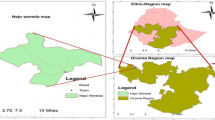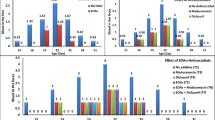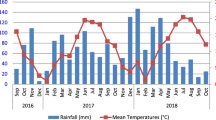Abstract
IT was recently shown that third-stage infective larvæ of the family Strongylidae commonly parasitic in the horse would readily shed their protective sheaths in equine duodenal contents1. Similar results have also been obtained by Sommerville2 using ovine material.
This is a preview of subscription content, access via your institution
Access options
Subscribe to this journal
Receive 51 print issues and online access
$199.00 per year
only $3.90 per issue
Buy this article
- Purchase on Springer Link
- Instant access to full article PDF
Prices may be subject to local taxes which are calculated during checkout
Similar content being viewed by others
References
Poynter, D., Nature, 173, 781 (1954).
Sommerville, R. I., Nature, 174, 751 (1954).
Silverman, P. H., Ann. Trop. Med. Parasitol., 48, 207 (1954).
Author information
Authors and Affiliations
Rights and permissions
About this article
Cite this article
POYNTER, D. Effect of a Coliform Organism (Escherichia) on the Second Ecdysis of Nematode Larvæ parasitic in the Horse. Nature 177, 481–482 (1956). https://doi.org/10.1038/177481a0
Issue Date:
DOI: https://doi.org/10.1038/177481a0
Comments
By submitting a comment you agree to abide by our Terms and Community Guidelines. If you find something abusive or that does not comply with our terms or guidelines please flag it as inappropriate.



